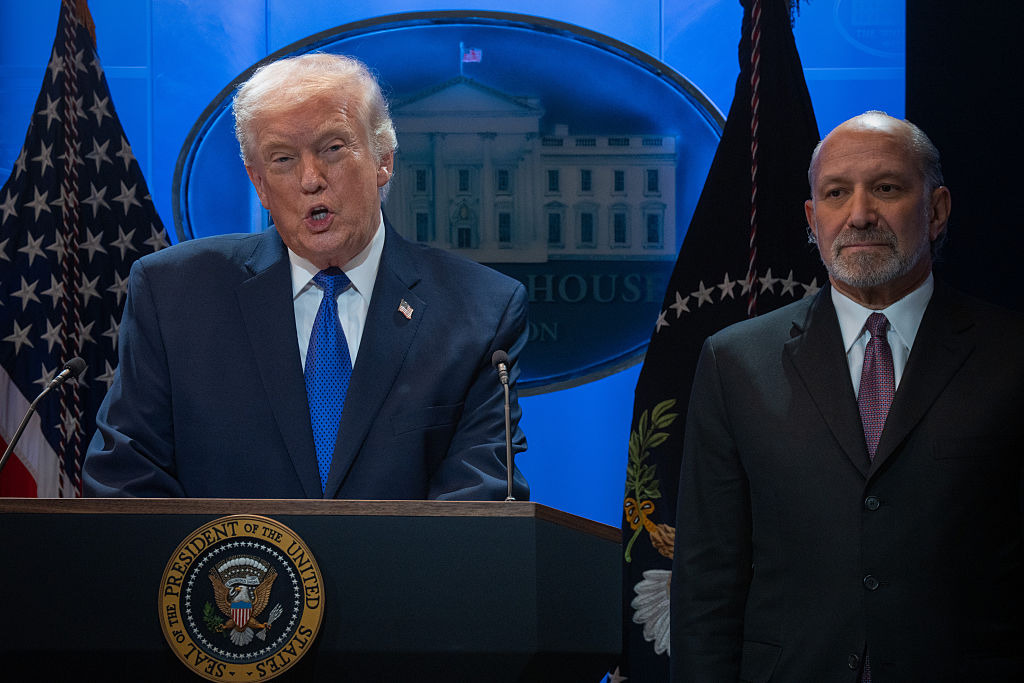Time to Move on Canada-Colombia FTA
Time to Move on Canada-Colombia FTA
Executive Vice President of the Canadian Council of Chief Executives David Stewart-Patterson makes a case in The Hill Times for why the Canada-Colombia free trade agreement is important to the Canadian economy, Colombian citizens, and labor protection standards.
Canada is a trading nation, so it should come as no surprise that most Canadians like the idea of boosting trade with countries where our commercial ties have been weak.
A recent Canadian Press Harris-Decima survey, for example, found that fully 70 per cent of respondents believe the federal government should pursue more international free trade agreements. Only 17 per cent were opposed.
The reason Canadians support trade and investment liberalization is simple: open markets are good for our country. Open markets create high-quality jobs for Canadian workers. They open doors for Canadian exporters. And by supporting business growth, they help to generate the tax revenues Canada needs for its public institutions and social programs.
In short, Canada’s future prosperity depends on our ability to do business in both developed and developing markets around the world. From Europe to Asia to South America and beyond, it is vital that we build new bridges and seek out new opportunities.
Here in our own hemisphere, our most immediate opportunity is quick implementation of the free trade pact that Canada has negotiated with Colombia. Bill C-23, which is currently before Parliament, would give formal approval to this trade deal and two important side agreements – one that is intended to protect and enhance workers’ rights, and a second that will strengthen bilateral cooperation on environmental matters.
Bill C-23 deserves the support of Members of Parliament for four major reasons.
First, enhanced international trade is vital to help our country recover from the global economic downturn.
At the moment, Canada is experiencing a lopsided economic recovery. Domestically, there are signs that we are beginning to make progress. But our international trade performance continues to disappoint. The strong Canadian dollar and weak demand in our largest market, the United States, have combined to make life difficult for many of Canada’s exporters.
We also are seeing a rising tide of protectionist measures such as the Buy American provisions in that country’s stimulus legislation.
And looking ahead, Canadians know from our own experience in the 1990s that the huge government deficits being run up in the United States create a real danger of prolonged weakness both in future American demand for our goods and services and in the value of the American dollar.
In this environment, it is vital for Canadian companies to continue to do everything possible to diversity their export markets. Passing Bill C-23 would reinforce these efforts. Conversely, further delays in passage of this bill would undermine the goal of improving Canada’s global trade performance and slow our return to strong economic growth.
Second, Bill C-23 will produce real benefits for Canadian workers, farmers, and companies.
The agreement will benefit companies and workers across a wide range of industries, including the automotive sector, steel, chemicals, public infrastructure development, oil drilling, environment and engineering services, information technology products and services, agriculture, fertilizer, paper and other forestry products, copper products, textiles, apparel and footwear, mining and advanced manufacturing.
Bill C-23 will help to level the playing field for Canadian exporters. It will stimulate growth in commercial relations, raise awareness and further open this dynamic and growing economy to Canadian know-how and ingenuity. Upon implementation, the agreement will eliminate tariffs on nearly the entire range of Canadian exports to that country.
Colombia’s tariffs on Canadian goods currently range from 15 percent to 108 percent. This represents a huge disadvantage for Canadian exporters. Passage of Bill C-23 would erase that disadvantage and help Canadian workers, farmers and businesses to stay ahead of global competitors.
It’s worth noting in this context that Colombia is not standing still and waiting for Canada to get its act together. Colombian President Alvaro Uribe recently signaled his interest in pursuing a free trade agreement with South Korea and spoke of working toward an enhanced relationship with Japan. Investment talks have already started between Colombia and China. Meanwhile, Colombia and the European Union are aiming to wrap up negotiations on an economic partnership agreement by next March. And Colombia has already completed negotiations with member states of the European Free Trade Association.
By the end of 2010, the government of Colombia expects to have completed nine trade agreements representing 45 countries. Moreover, it is only a matter of time before Canada’s number one trading partner, the United States, secures its own free trade agreement with Colombia. At a meeting on June 29 of this year, President Uribe and President Barack Obama instructed their teams to renew their efforts toward such an agreement. President Obama in particular expressed confidence that a deal can be struck “that is good for the people of Colombia and good for the people of the United States.”
Implementing the Canada-Colombia agreement quickly represents an opportunity for Canada to get out in front of our international competitors.
Third, Bill C-23 will benefit the people of Colombia.
Domestic policy reforms introduced over the past decade have served Colombians well. Colombia experienced accelerating economic growth between 2002 and 2007, thanks in part to improvements in domestic security, rising commodity prices, and market-based macro-economic policy reforms. Over that period, poverty levels declined by 20 percent and unemployment fell by 25 percent.
Naturally, Colombia’s economy has been hit by the global downturn, but the good news is that, like Canada, Colombia has come through 2009 relatively well. As the recession took hold, President Uribe’s government took many of the right steps: it cut capital controls, arranged for emergency credit facilities, promoted investment incentives and encouraged exporters to find new markets.
The Canada-Colombia Free Trade Agreement will signal Canada’s strong support for the pro-growth initiatives of President Uribe, and will further increase confidence in doing business in Colombia. In doing so, the Canada-Colombia FTA will reinforce efforts to promote greater safety, peace and confidence in Colombia.
On the subject of security in Colombia, the facts are inescapable. After decades of turmoil, violence has dropped to levels not seen in a generation. Tens of thousands of paramilitary fighters have demobilized, and education enrolment has increased dramatically.
People around the world are recognizing this growing sense of security and safety. One notable result: more than 200,000 cruise passengers docked in Cartagena in 2008, almost double the number in 2007. Significantly, Colombia now attracts more than 1.2 million visitors each year – double the number in 2002. Earlier this year, the Board of Governors of the Inter American Development Bank chose to meet in Colombia on the occasion of the bank’s 50th anniversary. Also scheduled to take place in Colombia is the 2010 World Economic Forum meeting on Latin America.
Recent improvements in security in Colombia have had tremendous impact in attracting foreign investment. Between 2005 and 2009, foreign direct investment into Colombia has averaged just over U.S. $9 billion a year.
Fourth, the proposed Canada-Colombia Free Trade Agreement meets the highest global standards.
Officials at the Department of Human Resources and Skills Development have concluded that “the agreement signed with Colombia represents the most comprehensive labour agreement in the world today.” Canada in fact has achieved labour protection provisions that go beyond those being sought by the United States and the European Union. The dispute resolution mechanism embodied in the Canada-Colombia labour side agreement will in a very real sense help to improve conditions for Colombian workers.
Officials at the Department of Finance, for their part, have concluded that Bill C-23 “gives [Canada] avenues of engagement we have never had before” to promote corporate social responsibility, enhanced environmental protection and improved rights for workers. In addition to its very strong provisions on labour standards, “the corporate social responsibility aspects of this agreement are the first time Canada has included such commitments” in a trade deal. These provisions are included in both the investment and environmental chapters of the Canada-Colombia FTA.
The Canada-Colombia Free Trade Agreement also will enhance the impact of Canada’s development aid programs in Colombia. Certainly there is a case for more aid to support marginalized communities, women and indigenous groups, legal assistance and judicial reform. But failure to implement our free trade agreement would undermine our ongoing development efforts to strengthen Colombia’s social and economic fabric.
To summarize, Canada should be doing everything possible to deepen commercial relations with Colombia and other promising markets. Prompt passage of Bill C-23 would help Canadian workers and businesses of all sizes, both in stimulating economic recovery in the short term and building sustainable competitive advantage. Implementing the free trade agreement also would benefit Colombia’s economy and society, and would signal Canada’s strong support for countries and governments committed to democracy, the rule of law, human rights, peace and security.
This is a deal that is good for Canadians, good for Colombians and sets an example for the world. We should just get on with it.
David Stewart-Patterson is Executive Vice President of the Canadian Council of Chief Executives, which represents 150 CEOs and leading entrepreneurs from all major sectors and regions of the country.








